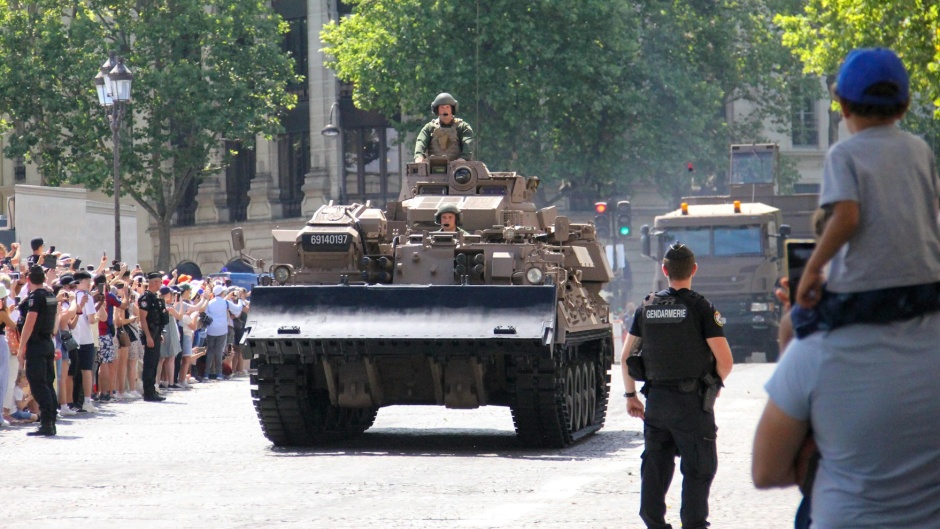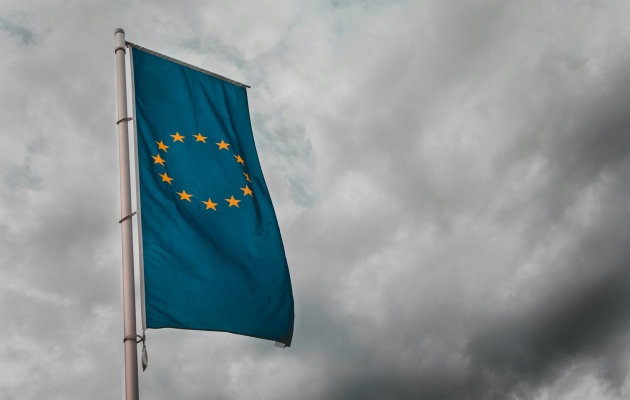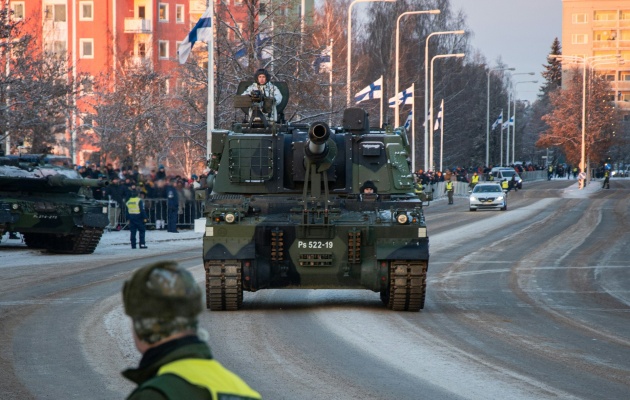With “an eye on Russia”, Europe’s evangelicals see need for defensive rearmament
Christians & European Elections (2). Evangelical voices in six countries agree on seeking more collaboration and foresight to maintain peace. Most rule out pacifist approaches.
18 APRIL 2024 · 15:44 CET

The thousands of deaths in Ukraine and the growing tension in the Middle East are being followed with concern in Europe, and Christians see the need make tough steps in the face of future conflicts.
This sense of uncertainty, which Evangelical Focus has identified after talking to evangelicals in six countries, seems widespread. The price of peace in Europe could be a factor driving the growing interest in voting in the European elections of 6-9 June. An Eurobarometer macro-survey expects the turnout to reach a historic 65%.
Romania’s “anxiety”
“Romanians continue their lives and businesses, but they keep an eye on the conflict at our Eastern borders”, says Daniel Fărcaș, a professor at the Eastern European Bible College in Romania. Although inflation and healthcare are still the main problems, 47 per cent of the population now say they fear an invasion.
“Recently, a Russian military drone fell on Romanian territory”, and there have been similar incidents since the war began in Ukraine. Meanwhile, “army officials are speaking often about the mandatory military service and the probability of a war escalation is more and more present in the public discourse”.
All this generates “some anxiety” that “unhappily, is being used by the pro-Russian nationalist politicians”.
Since the beginning of 2020, individual churches and Christian families have been involved in welcoming Ukrainian refugees, offering places to sleep, humanitarian aid and personal contacts to continue their journey to other countries.
However, “at present, Christians have different opinions on the Russian invasion”, notes Christian professor. Social media such as Tik-Tok manage to circumvent the ban on pro-Kremlin propaganda. “What makes the pro-Russian discourse attractive for some Christians is the depiction of the Western world as being morally corrupted or decadent, including the new concept of family. This is a good bait to use in every discourse targeting Christians of different denominations - both Eastern-Orthodox and evangelicals”.
In the urban areas, Christians “usually are less tempted to accept the mix between nationalism and religion”, says Fărcaș, who tries to teach his students to connect the Christian faith with the challenges of the present. “Christians should use both their God-given reason to appraise the public discourse and the gift of distinguishing between the spirits”, he says.

An European Union flag. / Photo: Sara Kurfess, CC0.
Finland: ‘Not many Christian pacifists’
Finland shares 1,300 km of borders with Russia, and although “there is no panic in the air, Finns consider it important that we prepare for possible more difficult times”.
According to Matti Korhonen, a journalist with the Christian magazine Uusi Tie, half the population “is not afraid”, although 25 per cent are. The government has increased defence spending because of the “weakened international situation”.
Korhonen has the feeling that “Finns trust their defence forces” and “want to strengthen national defence”. The Russian war hastened Finland’s entry into NATO just a year ago, a delicate move that had “strong support from the population”.
And how do the country’s believers see it? “A large majority of Christians think that the military defence is necessary. Pacifism does not have much support among Christians”, Korhonen observes. “A respected pastor and Bible teacher recently wrote on his blog: ‘After a brutal attack by the enemy, pacifists die out’”. “This is an exaggeration – Korhonen but there’s a seed of truth in it”.
Norway’s slow awakening to the reality of conflict
In neighbouring Norway, another journalist, Stein Gudvangen, editor of the Christian News Agency KPK, sees a Russian invasion of its territory as “unlikely”, because he cannot imagine how “Putin could allocate resources to the north having his hands full in Ukraine”.
“Pacifism is not really strong in Norway, not even among Christians”
With neighbours Sweden and Finland in the military alliance since 2023, cooperation will be even stronger and the interest in EU membership recedes.
Christians “have occasional chats over lunch” about the dangers of the future, “but not often, and I sense no general fear of war”. This said, “pacifism is not really strong in Norway, not even among Christians. Most people, irrespective of religious beliefs, would by no means accept an invasion".
But having had peace in northern Europe “over such a long time, younger generations seem to take this for granted”. The question this journalist raises is whether Norwegians are “prepared should the worst thing happen. Some people may strongly question that”.

Tanks in Finland. / Photo: Aleksi Partanen, CC0. A pacifist alternative from Germany
Someone who does advocate a pacifist approach to armed conflict is Johannes Reimer, a German who chairs the Peace and Reconciliation Network of the World Evangelical Alliance. In articles published on Evangelical Focus he has asked: “Are guns are truly the most effective means of defence against the enemy? Does the death of the enemy guarantee the lives of friends and family, as the representatives of the state say?”
For him, “we Christians are called to act as reconcilers in an unreconciled world, in the midst of the entangled positions of the enemies”.
Asked about the fears in Eastern Europe, Reimer detects worries about an expansion of the war “especially in countries which formerly belonged to the Warsaw Pact”, although with some exceptions such as Hungary or the Czech Republic.
“The vast majority of evangelical Christians in Eastern Europe are in principle pacifist”, says Reimer, who has travelled to most of these countries. “The Churches pray for peace. Very few would ever join the forces and fight against an enemy. By the way, this is a reality in Russia and Ukraine as well”, he adds.
“Transatlantic cooperation is essential for the Western world but very difficult with Trump”
“As a Christian”, Reimer emphasises, “I am committed to peace - and not to dubious ideas of just wars”.
Netherlands: “Transatlantic cooperation”
In the Netherlands, Evert Van Vlastuin, director of the news website Christian Network Europe, does support “defence being a high priority” in the European Union, adding that is “would not be unwise to appoint a Defence Commissioner in the new European Commission”.
He agrees with others consulted by this website that he and others are “not directly afraid that Russia will invade Poland or the Baltic states, but still, it is better to be prepared for such a tragedy".
Many Dutch look at the “transatlantic relationship” with the USA. “Although evangelicals in America vote Republican in majority, presidents from that party have never been welcomed in Europe”, notes Van Vlastuin, who is a Reformed Protestant. “I strongly believe that transatlantic cooperation is essential for the Western world but with a possible President Trump, this will become very difficult”.
France: “Unity to keep the European project alive”
Further south, leaders such as Thierry Le Gall of the National Council of Evangelicals in France (CNEF) point to the need for more “cooperation” in the face of the challenges ahead.
“Resisting the economic, technological and ideological battles being waged by Russia and China is only possible by remaining united and developing our cooperation between Member States of the European Union”, he says.
“Many Christians realise that it is necessary to be united in order to keep alive the European project”
Right now, everything points to Le Pen’s nationalist right wing coming first in the French vote for the European elections. “There is a nagging fear that the member nations of the European Union will lose some of their sovereignty”.
Moreover, “there is a kind of nostalgia for the global influence of the France of the De Gaulle years”, the evangelical representative writes. Many “imagine, rightly or wrongly, that a Europe-wide government is in the offing, a form of future ‘United States of Europe’ in which France would become a weakened member state”.
And some evangelical Christians, Le Gall adds, go so far as to imagine the EU as “a precursor to the construction of a new form of global governance”.
One more year
Learn all about our #OneMoreYearEF campaign here (English).
Published in: Evangelical Focus - europe - With “an eye on Russia”, Europe’s evangelicals see need for defensive rearmament
